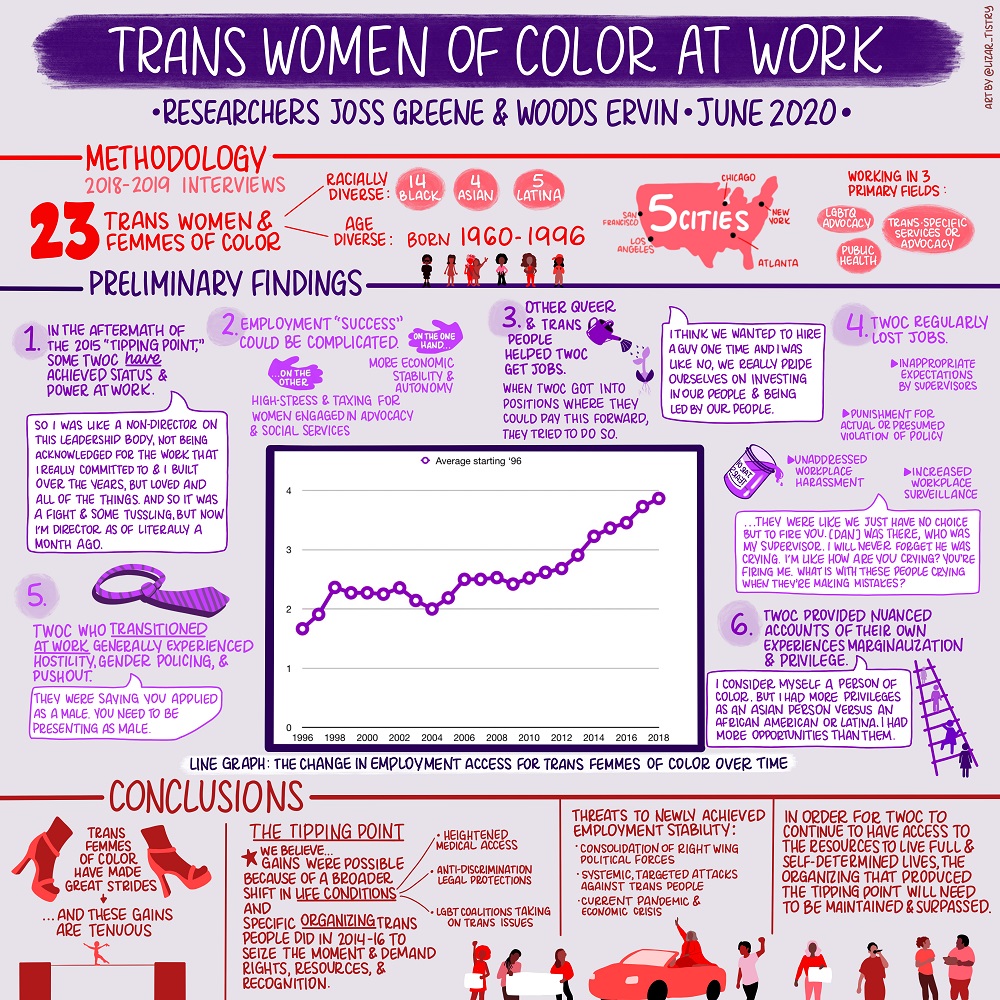 Between 2018-2019, Joss Green (one of our 2019-2020 CES Fellows) and Woods Ervin traveled to 5 cities (Atlanta, Chicago, Los Angeles, New York, and San Francisco) and interviewed 23 trans women and femmes of color about their work experiences.
Between 2018-2019, Joss Green (one of our 2019-2020 CES Fellows) and Woods Ervin traveled to 5 cities (Atlanta, Chicago, Los Angeles, New York, and San Francisco) and interviewed 23 trans women and femmes of color about their work experiences.
In each interview, they collected personal work histories and asked people to reflect on how their experiences compared to what they were seeing among other trans women and femmes of color in their community. By charting work histories on timelines, Joss and Woods were able to observe historical patterns and shifts in Trans Women of Color (TWOC’s) employment exclusion or access.
The main finding in their research is that trans women and femmes of color gained employment access in the aftermath of the 2015 “Transgender Tipping Point.”
Gains were made because of a broader shift in life conditions for trans people (heightened medical access, anti-discrimination legal protections at federal and state level, LGBT political coalitions taking on trans issues) and because of specific organizing trans people did in 2014-2016 to demand rights and resources. Yet, challenges remain.
The more stable jobs trans women and femmes of color hold tend to be in the high-stress services and advocacy sector. Trans women and femmes of color regularly lose jobs, especially if they transition at work. And employment access is stratified, with black and brown trans women, poor women, undocumented women and women facing other forms of marginalization struggling to keep up with the gains of their peers with race, class, and citizenship privileges.
To read the full report of the research findings, click here.
To read the policy brief, click here.
To access a folder with graphics that can be shared on social media platforms, click here.